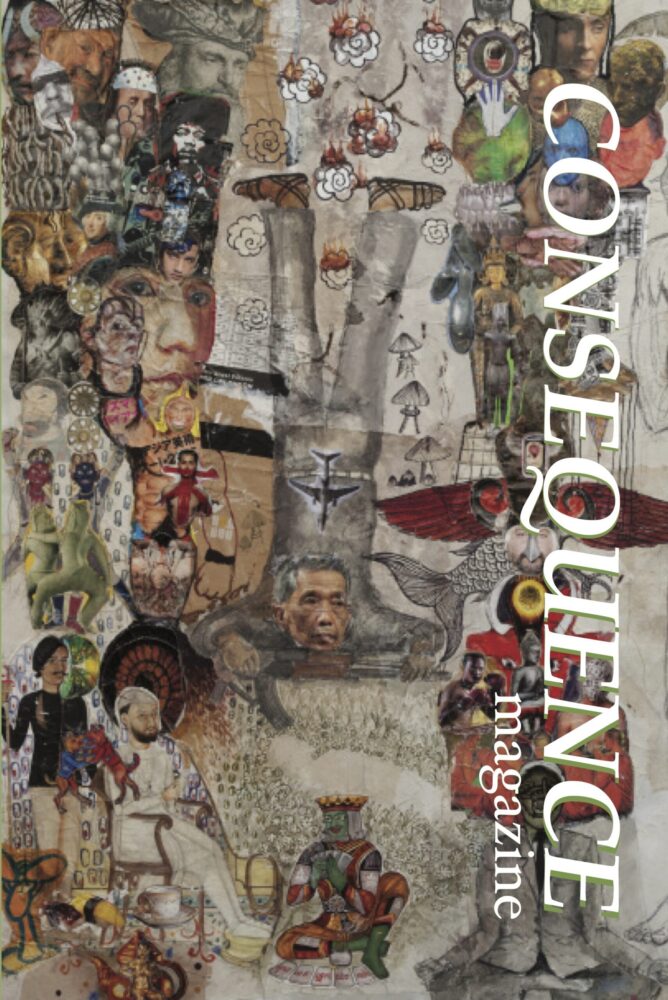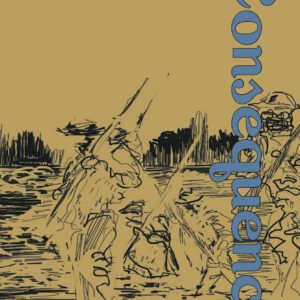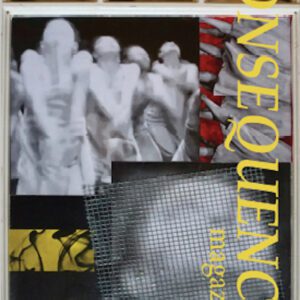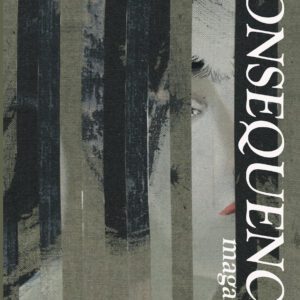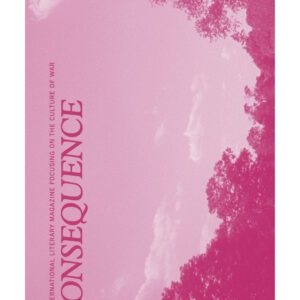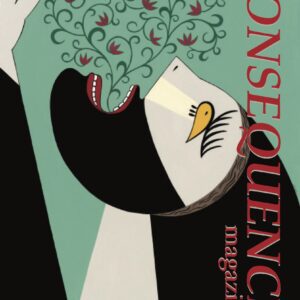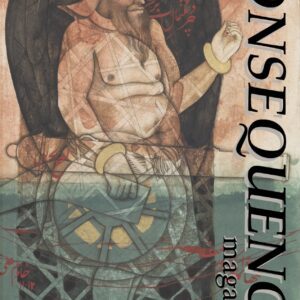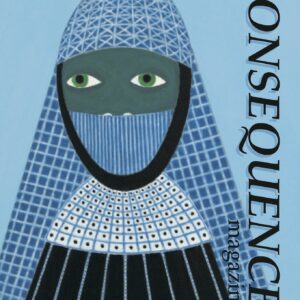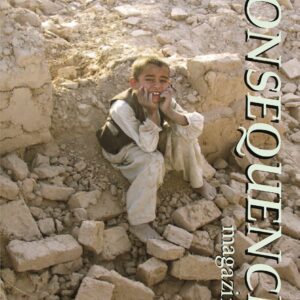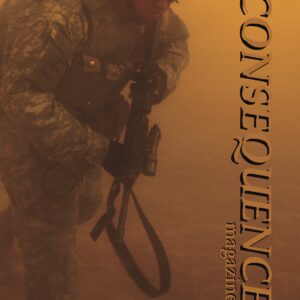Volume 9
$5.00
Editor’s Note
I remember three great-grandparents on my father’s side, immigrants who came to this country in the 1880s to escape poverty and the dismal horizon of a quasi-feudal society. Hearing of jobs in America cutting stone to build New York City, they borrowed money for passage to an uncertain future. They carried few possessions, spoke no English, and being poor and young they were vulnerable. But as daunting as it was to leave behind all they’d known, it was their decision; my great grandparents were not fleeing a war to stay alive. Refugees, however, leave their homelands because they have no choice
As this issue of Consequence goes to print, a federal appeals court has halted a particularly mean-spirited and likely unconstitutional order banning Muslim refugees. If the US Supreme Court upholds the ban, our government will turn these desperate families away, and those whose animus emerges from ignorance and irrational fear will have their small victory.
Prejudice finds soft targets among the vulnerable who’ve lost possessions, livelihood, community, and sometimes family members. Because they may look different, speak a strange language, appear frightened and disoriented, they are often shunned. Their tragedy is uncomfortable to witness because it reminds us that our own privileged security could be otherwise, had we been born in, say, Syria. For most of us, suffering like theirs is merely conceivable.
Although they search for safety, refugees often develop an overwhelming sense of not belonging, a feeling that may never go away. Without help learning a new language, finding work, and acclimating to a society that can be suspicious or intolerant, the challenges facing these families can defeat them. To compound these difficulties, many refugees have been traumatized by the violence they’ve experienced. Proud parents who bear hidden scars struggle to raise healthy children and keep their family together. At this moment
in our increasingly surreal time, it’s uncertain how these dispossessed and rejected asylum seekers will find adequate aid and protection.
Three generations of Cambodian Americans have a unique understanding of the word, refugee. The first generation, now grandparents, came to this country to escape the horrific Khmer Rouge genocide of the 1970s that destroyed nearly two million lives in the name of an absurd ideology. But the tragic history and continuing story of the survival of the Cambodian people is rarely heard. It’s overshadowed in the minds of most Americans by the Vietnam War.
This issue of CONSEQUENCE features work by and about Cambodians who are survivors coming to terms with a devastating past. Some return years later to Cambodia remembering what they endured, seeking to understand the senseless killing, and desiring justice that comes far too slowly. There are also stories, poems, and essays by the next generation of writers determining their own identity while honoring the Khmer culture and traditions of their elders. And now a new generation of Cambodian Americans speaks out, often exclusively in English, embracing American culture wholeheartedly, leaving behind community, traditions, and sometimes even their past. For all of these generations, language plays a determining role in their identity and their future.
Several pieces in this issue are by Cambodian writers and have been translated from the Khmer. Sok Chanphal’s short story, set in Tuol Sleng’s infamous prison, invokes a tortured past, and mocks the ineptitude of politicized efforts toward justice and reconciliation. Phina So’s story takes us into the light of contemporary Phnom Penh with its young, female protagonist’s declaration of gender equality, as she embraces the strength of Khmer language and art in a new idiom. The themes revisited by these writers—the search for security, justice, identity, acceptance, and respect—represent the struggle of all refugees. However, in our present context of an America dispossessed of civility and pursuing a policy of “perpetual war,” they can also be read as the outrageous price of admission to a once-great nation.
—George Kovach
